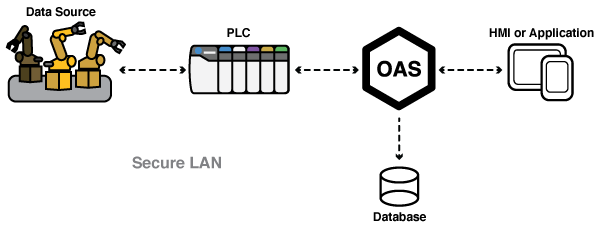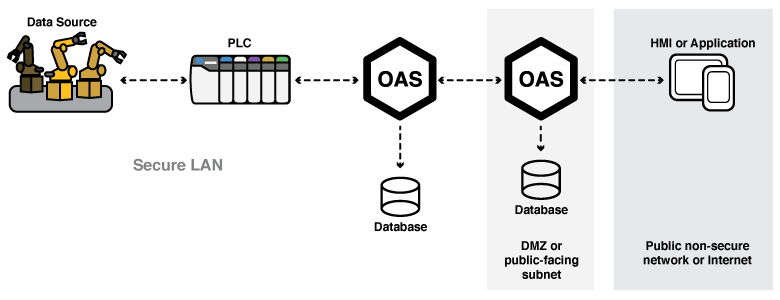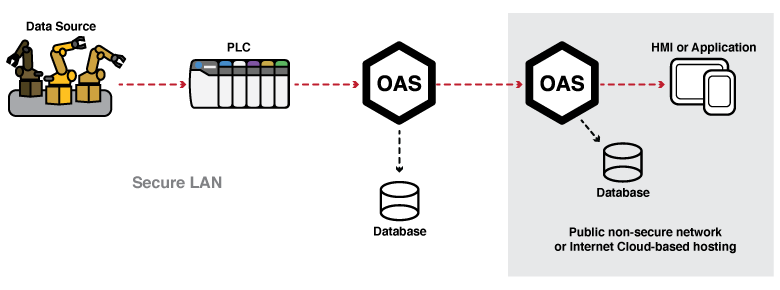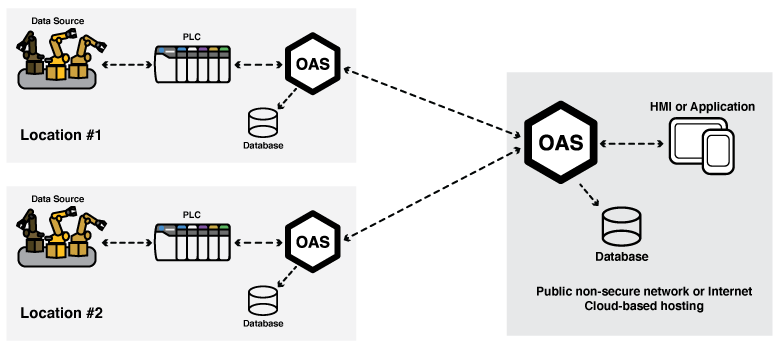Typical OAS Deployments
Each system configuration and customer requirements are unique, and the OAS Platform is flexible and can adapt to virtually any scenario. Yet, there are some deployment patterns that are common, and can be illustrated in order to help you understand the benefits of each. Click images to enlarge each diagram.
On-premise or closed network
OAS can be installed on a server within a local, secure network for gathering, logging, and delivering data for internal applications. This configuration provides the highest level of security and data integrity by placing the OAS instance closest to the data source.
DMZ or public-facing subnet
Using the Live Data Cloud feature of OAS, you can connect one or more instances of OAS on secure networks to an OAS instance in a DMZ. This allows you to keep your data and data sources secure, while exposing and aggregating the data you choose for external endpoints. All communications between OAS instances is compressed and encrypted. Additionally, you can also log data from any OAS instance, allowing you to maintain private logs at the data source and a public aggregate log for external clients.
Secure cloud-hosted OAS
Again, using the Live Data Cloud feature of OAS, you can connect one or more instances of OAS on secure networks to an OAS instance hosted on a public network in the cloud without the need for fixed IPs. All of the same features and capabilities are available in each OAS instance, including data logging, APIs for custom HMIs, Alarm notification, and more.
Secure communications diode
The OAS Platform can be configured to ensure data is one-way and read only for external clients, effectively creating a “communications diode”. This ensures no possible manipulation of source data from external clients for the most secure and flexible configuration in critical environments.
Multi-tenant deployment
OEMs and System Integrators can securely connect and aggregate data from many customers in different locations, while still providing custom applications served from an external public network.
More:





